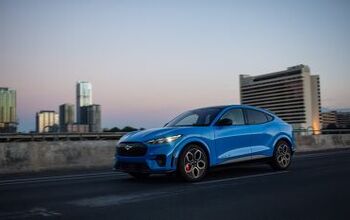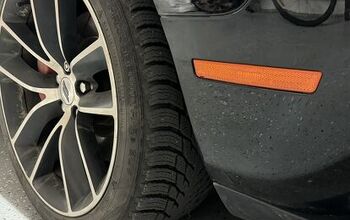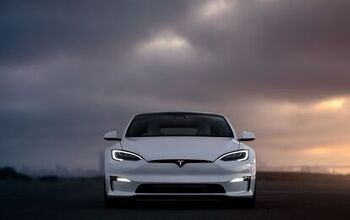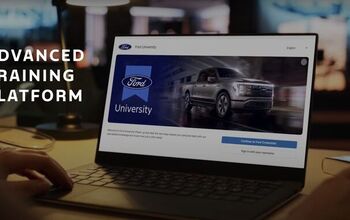End of the Line: Takata, Supplier of Millions of Explosive Airbags, Files for Bankruptcy

The impending bankruptcy of Japanese airbag maker Takata Corp. has been teased at and speculated upon for months. It was never a question of whether the parts supplier would go belly-up after causing the largest automotive recall in history, but how and when.
After furnishing dozens of automakers with airbag inflators what were, in essence, improvised grenades, the multi-million unit recall has left Takata with little recourse. The company has filed for bankruptcy protection in both Japan and the United States, announcing it will sell off the majority of its remaining assets to Key Safety Systems. One of the missing assets will be the equipment relating to the company’s nefarious ammonium nitrate airbag inflators.
The devices, subject to exploding with far too much force and spraying vehicle interiors with metal shrapnel, are responsible for a minimum of 16 deaths, hundreds of injuries, and the ruination of the company.
Responsible not only for providing a dangerous product but also for doing so while withholding information about defects and manipulating inflator test data, Takata’s goose has been cooked ever since it pleaded guilty to fraud earlier this year. The supplier agreed to a billion-dollar criminal fine as several of its top executives, now unemployed, were indicted by a federal grand jury for criminal wrongdoing.
Takata executives, including CEO Shigehisa Takada, have been extremely apologetic since being caught in the scandal and, according to reports from Automotive News, the Tokyo news conference to announce the bankruptcy was no different. “We spent much time on negotiations, it was extremely difficult to reach an agreement with more than 10 carmakers worldwide and a sponsor candidate company,” Takada explained.
“If things are left as is, we are aware of risks that we may not able to raise fund and to continue stable supply of products,” he continued.”In light of the management environment we face, the state of negotiations with the sponsor candidate and carmakers, and the external expert committee’s opinion, we have decided today to file for bankruptcy protection.”
The company is still required to pay almost a billion dollars in restitution. Roughly $850 million is relegated to automakers who were forced into recalls due to Takata’s actions, while another $125 million is reserved for the remaining settlements for individuals injured by airbags.
However, the total global liabilities the supplier has to endure is well into the billions. Tokyo Shoko Research Ltd. claims Takata’s total liabilities for ongoing recalls, penalties, and settlements is likely somewhere in the neighborhood of 1.7 trillion yen. That’s nearly $15 billion.
Key Safety cannot cover that and neither can Takata, even if it dissolves the family-owned holding company controlling it or abandon its stake. “Effectively, it is impossible for the founding family to remain as a big shareholder,” Takada told reporters at the bankruptcy announcement. Takata attorney Nobuaki Kobayashi stated the former Takata entity may be liquidated when operations are handed over to Key and shares could be “processed.”
Affected parties want to be reimbursed, however, and the supplier’s financial woes are of little concern to them. Peter Prieto, court-appointed counsel for the consumer plaintiffs in the Takata liability litigation, released the following statement regarding the bankruptcy filing.
“We do not expect a Takata bankruptcy to have an impact on claims pending against auto manufacturer defendants for their role in the airbag scandal. Settlement agreements with Toyota, Subaru, BMW and Mazda have already received preliminary approval from the MDL Court, and will accelerate the removal of dangerous airbag inflators from 15.8 million vehicles and compensate consumers for economic losses associated with the recall. We will continue fighting for our clients and prosecuting claims against Honda, Ford, Nissan, as well as Takata, to make sure all affected consumers receive the recourse they deserve.”
Automakers also want to be reimbursed for being placed in this situation, yet find themselves unable to get the replacement units they need from Takata, let alone adequate reparations. The recall is so vast that it covers models from several automotive brands that don’t even exist anymore, including Scion, Saab, Saturn, Pontiac, and Mercury. Currently, only 38 percent of the 43 million airbag inflators under recall in the U.S. have been repaired and there are millions more left unfixed globally. Many automakers have turned away from the supplier entirely, seeking help from its competitors to help expedite replacement units.
Key plans on taking ownership at the start of next year. Operations will continue with as much of the current staff as possible while the company refocuses its efforts on non-airbag related equipment.
“The underlying strength of its skilled employee base, geographic reach, and exceptional steering wheels, seat belts and other safety products have not diminished,” Key Safety CEO Jason Luo said in a statement. “We look forward to finalizing definitive agreements with Takata in the coming weeks, completing the transaction and serving both our new and long-standing customers while investing in the next phase of growth for the new [Key Safety].”
Takata will persist temporarily as a semi-separate entity to continue the 100-million inflator recall through 2019.

A staunch consumer advocate tracking industry trends and regulation. Before joining TTAC, Matt spent a decade working for marketing and research firms based in NYC. Clients included several of the world’s largest automakers, global tire brands, and aftermarket part suppliers. Dissatisfied with the corporate world and resentful of having to wear suits everyday, he pivoted to writing about cars. Since then, that man has become an ardent supporter of the right-to-repair movement, been interviewed on the auto industry by national radio broadcasts, driven more rental cars than anyone ever should, participated in amateur rallying events, and received the requisite minimum training as sanctioned by the SCCA. Handy with a wrench, Matt grew up surrounded by Detroit auto workers and managed to get a pizza delivery job before he was legally eligible. He later found himself driving box trucks through Manhattan, guaranteeing future sympathy for actual truckers. He continues to conduct research pertaining to the automotive sector as an independent contractor and has since moved back to his native Michigan, closer to where the cars are born. A contrarian, Matt claims to prefer understeer — stating that front and all-wheel drive vehicles cater best to his driving style.
More by Matt Posky
Latest Car Reviews
Read moreLatest Product Reviews
Read moreRecent Comments
- Master Baiter The 10 year maintenance cost should be normalized with respect to the vehicle cost. Of course a $150K Porsche or Range Rover is going to cost more to maintain than a $20K Camry.
- Paul 175k? Pffft not a chance. A VW with that mileage is an enormous bill waiting to happen.
- Turbo Is Black Magic Civic Si all the way… it’s the sweet spot of fun to drive, manual, decent MPG’s, no dealer markup BS. Especially in Canada where you can get heated seats.If you are in the US just buy the last gen Si… it’s still a vastly better car than the current one.
- FreedMike Cheap, fun car. I like it. For what it's worth, good examples of the first-gen models (based on the original Golf) have become collectible and expensive.
- Ajla I won't rank them because there are too many permutations but if I was actually shopping them odds are high I'd end up with some flavor of Corolla over some flavor of Civic.


































Comments
Join the conversation
Were each of those car makers proven to have installed airbags they knew were defective at the time?
Crappy supplier trying to maximize profit, by switching from sodium azide to the cheaper ammonium nitrate, and then making them even cheaper by deleting the desiccant bag. A recipe for disaster. Of course this isn't Takata's first scandal. In 1995 it was seat belt buckles made out of ABS plastic, that fell apart after a couple years' exposure to UV rays, causing belts to unbuckle themselves. They tried blaming owners (sloppy Americans eating Big Macs in cars!), but NHTSA's investigation proved it was the ABS plastic.